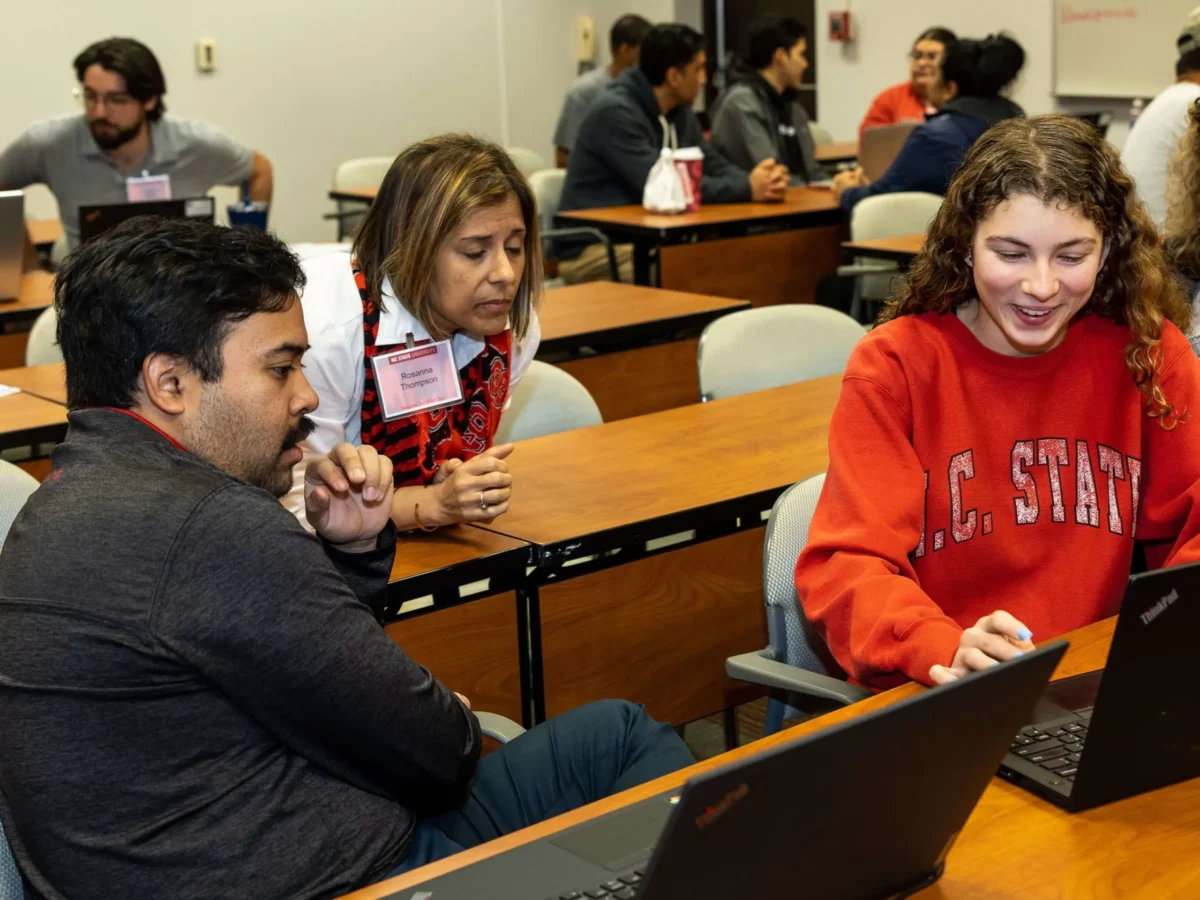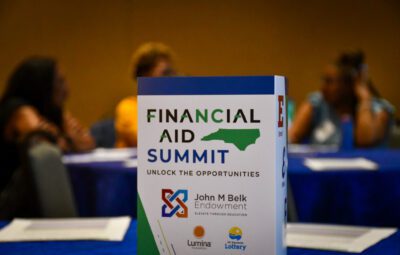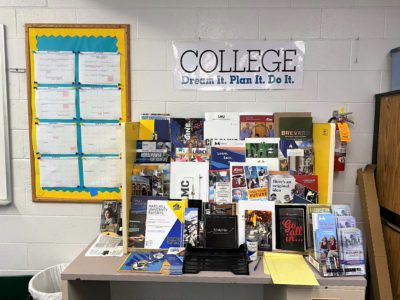
|
|
Updated on Aug. 13, 2024
myFutureNC, the state’s nonprofit working to increase job skills and college attainment across the state, is sounding the alert that time is running out for college-bound students and adults to qualify for the state’s new Next NC Scholarship by completing the Free Application for Federal Student Aid (FAFSA). The priority date to finish the FAFSA to qualify is this Thursday, August 15.
Help is available
The North Carolina State Education Assistance Authority — the state’s education financial aid agency — has hired 89 counselors and college advisors at 13 UNC universities and 52 community colleges to offer hands-on FAFSA support for North Carolinians this summer.
Help is available to incoming freshmen, current college students, and adult learners via phone call, email, or in-person, according to a press release.
We need you to spread the word as time is running out for college-bound students to complete the Free Application for Federal Student Aid (FAFSA), with the Aug. 15 priority date looming for those who may qualify for the state’s Next NC Scholarship.
At least 3,740 students have so far benefited from the program, according to the release.
With North Carolina still behind on FAFSA completion rates, this is a story that affects every family with someone needing to take this first step in qualifying for financial aid for college.
The federal government’s “Better FAFSA” launched earlier this year amid multiple glitches and delays, causing enormous stress for students and families who need help paying for college.
According to the press release, North Carolina’s current FAFSA completion rate stands at 49% for high school seniors. In all, that’s nearly 11% — 6,000 students — short of the state’s 2023 completion rate.
Cost is the largest barrier to college, and FAFSA completion is a strong enrollment predictor for UNC System institutions and community colleges. Students who don’t complete a FAFSA are at risk of never starting college, because the application is the key that unlocks federal and state scholarships, grants, and work-study programs — money that doesn’t have to be repaid after graduation. The FAFSA also allows students to be considered for subsidized and unsubsidized federal loans.
Since the additional help started on June 17, NCSEAA has seen an increase of 675 completed FAFSAs over the same one-month period as last year, equating to an additional $1.9 million in estimated Pell Grants earned.
“Completing a FAFSA helps make paying for college more manageable for NC families because it helps students see the financial aid they qualify for. But with the challenging roll out of this year’s FAFSA, too many students who plan to go to college have not taken this important step,” said Andrea Poole, executive director of NCSEAA. “This statewide initiative provides hands-on, personalized help that guides students through the FAFSA process, which is critical for their eligibility for the Next NC Scholarship and other State-funded grants and scholarships.”
Students who complete a FAFSA prior to Aug. 15 can still be considered for the Next NC Scholarship. Households with an annual income of $80,000 or less — 55% of all North Carolina families — are eligible for at least $5,000 per year to cover more than half, if not all, of tuition and fees at UNC System institutions. The scholarship also provides those families $3,000 per year to cover tuition and fees at all community colleges in the state. Most eligible students will qualify for even more.
To receive help on the FAFSA, students can check the CFNC Financial Aid Map to find their closest financial aid office and connect with trained experts. Students can also opt into text message support by going to CFNC text support, or by texting FAFSA to (984) 342-3862.





